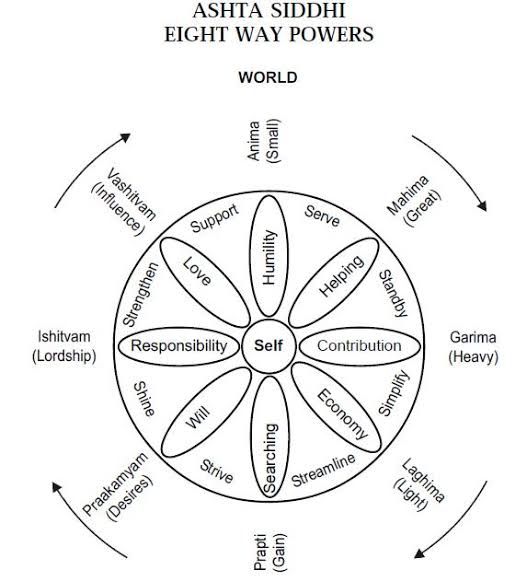1) Single most important principle in the field of interpersonal relations is Empathic Communication, which means "Seek first to understand, then to be understood"
#Leadership #Communication #empathy
Ignoring - not listening at all
Pretending - "Yeah. Uh-huh. Right"
Selective Listening - hearing only selective parts
Attentive listening - paying attention and focusing on words
But we should practice the 5th level : Empathic Listening
Evaluate:either agree or disagree
Probe:ask question from our frame of reference
Advise:counsel based on our own experience
Interpret:explain others motives, behavior based on our own
mimic content: it at least causes us to listen what's being said
rephrase the content: little more effective
reflect feeling: bring your right brain into operation
rephase+reflect: Paying attention and feeling what is being said
ethos is personal credibility
pathos is empathetic side
logos - its the logic, the reasoning part
Notice the sequence: ethos, pathos and logos and it must be followed
More from Bank
Last week the @ECB extended its current asset purchase program, now totalling €1.8 tn. Several EU states can borrow at negative interest rates.
10 years ago, the eurozone almost collapsed, a result of a misconstructed currency that was meant to fail from the outset.
A thread👇

1/Before the introduction of the euro, fluctuating exchange rates were seen as threat for economic integration & embarrassment for those who were inflating their currencies faster than others.
The European Monetary System, set up in 1979, was an attempt to stabilise fx rates.
2/The EMS was doomed to fail as members applied different monetary policies while trying to keep their fx rates in a pre-defined corridor.
The German Bundesbank refused to devalue the Mark when other centr. banks inflated their currencies - strengthening the Mark by comparison.

3/Traditionally, Southern EU countries have been more prone to inflation & high debt levels due to a large public sector, strong labour unions & generous pension systems.
Northern countries like Germany & the Netherlands typically had more prudent monetary & fiscal policies.
4/To get rid of the stubbornly conservative Bundesbank & monetise public deficits more easily, Southern countries spearheaded by France pushed for a single currency and used Germany’s desire for reunification in 1989 to make it give up the D-Mark.
10 years ago, the eurozone almost collapsed, a result of a misconstructed currency that was meant to fail from the outset.
A thread👇

1/Before the introduction of the euro, fluctuating exchange rates were seen as threat for economic integration & embarrassment for those who were inflating their currencies faster than others.
The European Monetary System, set up in 1979, was an attempt to stabilise fx rates.
2/The EMS was doomed to fail as members applied different monetary policies while trying to keep their fx rates in a pre-defined corridor.
The German Bundesbank refused to devalue the Mark when other centr. banks inflated their currencies - strengthening the Mark by comparison.

3/Traditionally, Southern EU countries have been more prone to inflation & high debt levels due to a large public sector, strong labour unions & generous pension systems.
Northern countries like Germany & the Netherlands typically had more prudent monetary & fiscal policies.
4/To get rid of the stubbornly conservative Bundesbank & monetise public deficits more easily, Southern countries spearheaded by France pushed for a single currency and used Germany’s desire for reunification in 1989 to make it give up the D-Mark.
Saturday marks the 30th anniversary of German reunification.
— HODLdax (@HODLdax) September 30, 2020
Did you that Germany had to sacrifice its national currency for it?
Let\u2019s look back at the fateful decisions leading to the Euro, a secretive project driven by much political interest and little economic reason.\U0001f447 pic.twitter.com/XcWgBOr29O
You May Also Like
1/x Fort Detrick History
Mr. Patrick, one of the chief scientists at the Army Biological Warfare Laboratories at Fort Detrick in Frederick, Md., held five classified US patents for the process of weaponizing anthrax.
2/x
Under Mr. Patrick’s direction, scientists at Fort Detrick developed a tularemia agent that, if disseminated by airplane, could cause casualties & sickness over 1000s mi². In a 10,000 mi² range, it had 90% casualty rate & 50% fatality rate

3/x His team explored Q fever, plague, & Venezuelan equine encephalitis, testing more than 20 anthrax strains to discern most lethal variety. Fort Detrick scientists used aerosol spray systems inside fountain pens, walking sticks, light bulbs, & even in 1953 Mercury exhaust pipes

4/x After retiring in 1986, Mr. Patrick remained one of the world’s foremost specialists on biological warfare & was a consultant to the CIA, FBI, & US military. He debriefed Soviet defector Ken Alibek, the deputy chief of the Soviet biowarfare program
https://t.co/sHqSaTSqtB

5/x Back in Time
In 1949 the Army created a small team of chemists at "Camp Detrick" called Special Operations Division. Its assignment was to find military uses for toxic bacteria. The coercive use of toxins was a new field, which fascinated Allen Dulles, later head of the CIA

Mr. Patrick, one of the chief scientists at the Army Biological Warfare Laboratories at Fort Detrick in Frederick, Md., held five classified US patents for the process of weaponizing anthrax.
2/x
Under Mr. Patrick’s direction, scientists at Fort Detrick developed a tularemia agent that, if disseminated by airplane, could cause casualties & sickness over 1000s mi². In a 10,000 mi² range, it had 90% casualty rate & 50% fatality rate

3/x His team explored Q fever, plague, & Venezuelan equine encephalitis, testing more than 20 anthrax strains to discern most lethal variety. Fort Detrick scientists used aerosol spray systems inside fountain pens, walking sticks, light bulbs, & even in 1953 Mercury exhaust pipes

4/x After retiring in 1986, Mr. Patrick remained one of the world’s foremost specialists on biological warfare & was a consultant to the CIA, FBI, & US military. He debriefed Soviet defector Ken Alibek, the deputy chief of the Soviet biowarfare program
https://t.co/sHqSaTSqtB

5/x Back in Time
In 1949 the Army created a small team of chemists at "Camp Detrick" called Special Operations Division. Its assignment was to find military uses for toxic bacteria. The coercive use of toxins was a new field, which fascinated Allen Dulles, later head of the CIA





















